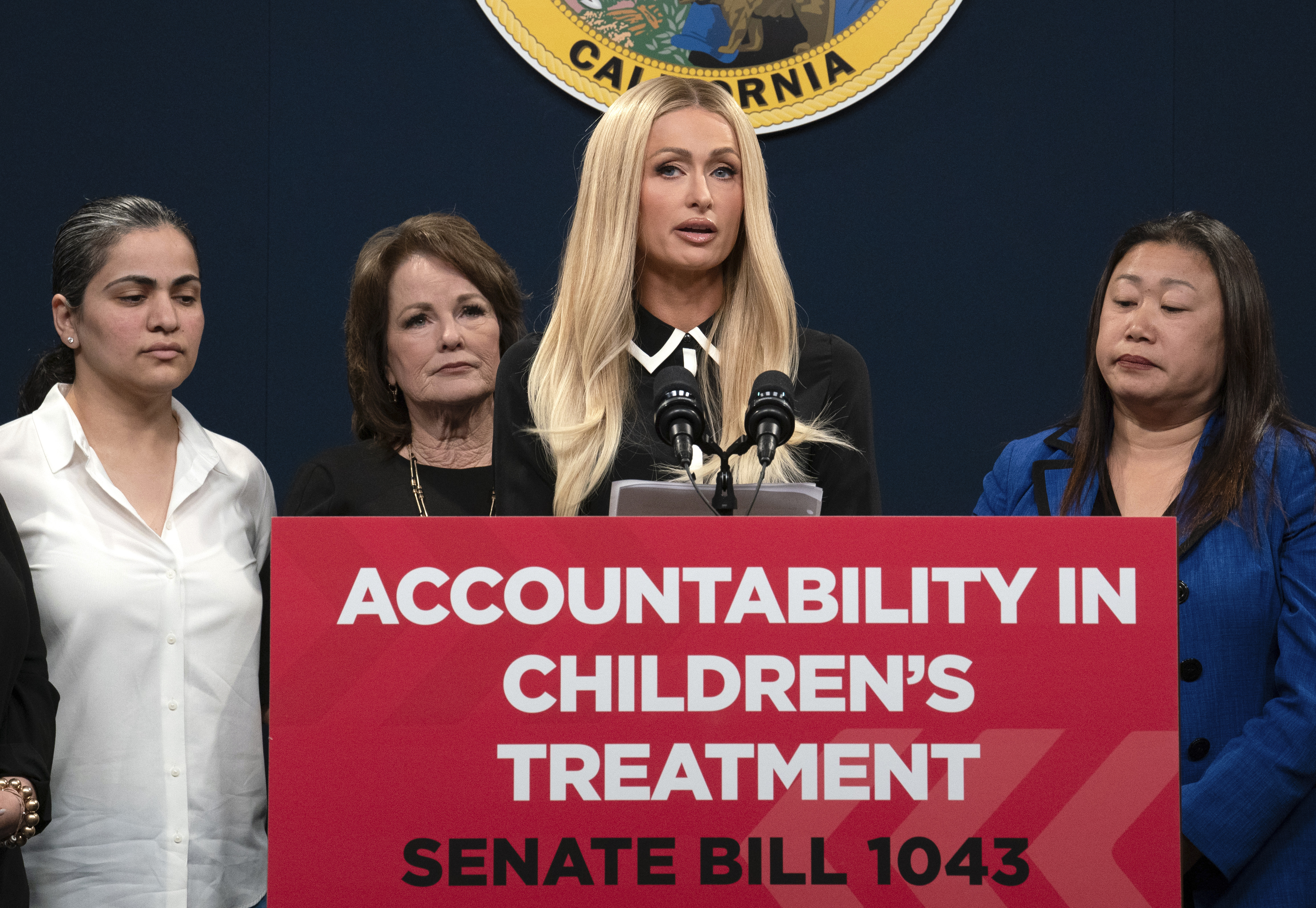| By Corey G. Johnson |
| Center for Investigative Reporting |
| Publish date: July 11, 2013 |
State lawmakers called Wednesday for an investigation of the physicians involved in the sterilization of women inmates and raised questions about a federal prison overseer’s role in handling the matter.
In a letter to the Medical Board of California, state Sen. Ted Lieu, D-Redondo Beach, said that The Center for Investigative Reporting’s investigation raised “troubling allegations that doctors violated State law, disregarded ethical guidelines, and fell well below the Standard of care.” Lieu is chairman of the Business, Professions and Economic Development Committee, which oversees the medical board.
“We’ve been assured that this practice hasn’t occurred since (2010), but the question of course is why was this occurring?” state Sen. Hannah-Beth Jackson, D-Santa Barbara, who also signed Lieu’s letter, told CIR. “We want to make absolutely sure – whether we have to do legislation or what – this procedure never becomes the practice it had in the past.”
CIR found that 148 women received tubal ligations without required state approvals from 2006 to 2010. Former inmates say doctors pressured women into getting sterilized and targeted those deemed likely to commit future crimes.
California
If Lieu’s request is accepted, the doctors reviewed could include those inside the prison who made referrals for the surgeries as well as outside contractors at nearby hospitals who performed the procedure in violation of state rules.
Lieu also called for the medical board to recommend ways for the Legislature to ensure unauthorized surgeries don’t occur in the future and to consider whether doctors involved in unauthorized tubal ligations should be disciplined. The federal prison receivership has said it put a stop to all tubal ligations in 2010.
“A physician’s sole and only concern should be that of the patient,” Lieu wrote. “Whether a surgical procedure would have any hypothetical effect on welfare rolls should never, ever play a part in a doctor’s decision.”
Dr. James Heinrich, a prison OB-GYN who referred women prisoners for the surgery, told CIR the money spent sterilizing inmates was minimal “compared to what you save in welfare paying for these unwanted children – as they procreated more.”
A former top medical official at Valley State Prison for Women, one of two prisons that sterilized female inmates, acknowledged seeking ways around the state's 1984 ban on tubal ligations. That ban allowed the procedure only in life-threatening situations and with high-level state review.
Daun Martin said she and Heinrich believed the restriction was “unfair.”
Martin said she did not allow the procedures once she knew they were banned. But state records show at least 60 occurred under her watch without those approvals.
Joyce Hayhoe, speaking for the receivership, said officials there also were outraged over comments made by doctors in the CIR story.
“This was clearly a practice that started in the prison system prior to the receivership – that we inherited,” Hayhoe said.
Gov. Jerry Brown’s office referred requests for comment to the California Department of Corrections and Rehabilitation. As of publication, the state prison office had not commented.
In a separate letter, Jackson – vice chairwoman of the California Legislative Women’s Caucus – along with top leaders of the Senate and Assembly, told the receivership she would ask the California State Auditor to probe allegations that physicians under the federal receivership have coerced female inmates into sterilization procedures, including during labor.
The letter sharply criticized the office of the federal receiver, which has controlled prison health care since 2006. It asks the receiver to provide answers within two weeks concerning how women ended up sterilized while under federal control.
Documents obtained by CIR show the receiver’s office knew in 2008 that sterilizations were occurring. The office didn’t move to stop the procedures until 2010, after a prisoner advocacy group, Justice Now, filed a public records request and complained to state Sen. Carol Liu, D-Glendale. Liu was the chairwoman of the Select Committee on Women and Children in the Criminal Justice System.
“As the federal Receiver, you were appointed by the three-judge panel to implement a lawful standard of medical care in California prisons. These instances of unauthorized tubal ligations under your watch violate California state laws,” the letter Tuesday to the receiver states.
“Pressuring a vulnerable population – including at least one documented instance of a patient under sedation, to undergo these extreme procedures erodes the ban on eugenics. In our view, such practice violates Constitutional protections against cruel and unusual punishment; protections that you were appointed to enforce.”
Former Valley State inmate Kimberly Jeffrey told CIR she was asked repeatedly to get sterilized, including while sedated and strapped to a surgical table for a C-section in 2010. Her hospital medical records indicate she declined the procedure.
“He said, ‘So we’re going to be doing this tubal ligation, right?’ ” Jeffrey said. “I’m like, ‘Tubal ligation? What are you talking about? I don’t want any procedure. I just want to have my baby.’ I went into a straight panic.”
Jackson told CIR such allegations were “totally unacceptable and very alarming.” She said she wanted the public to know that she and her lawmaker colleagues are working hard to ensure that the unauthorizedsterilizations never happen again.
Hayhoe, with the receivership, said it and members of the California Legislative Women’s Caucus discussed the letter during a meeting today. She said it would be no problem to answer any additional questions.
Chris Valine, public information analyst for the medical board, said the office did receive Lieu's letter but could not comment further, citing confidentiality requirements.
This story was edited by Amy Pyle. It was copy edited by Christine Lee.
The independent, nonprofit Center for Investigative Reporting is the country’s largest investigative reporting team. For more, visit www.cironline.org. The reporter can be reached at cjohnson@cironline.org.



